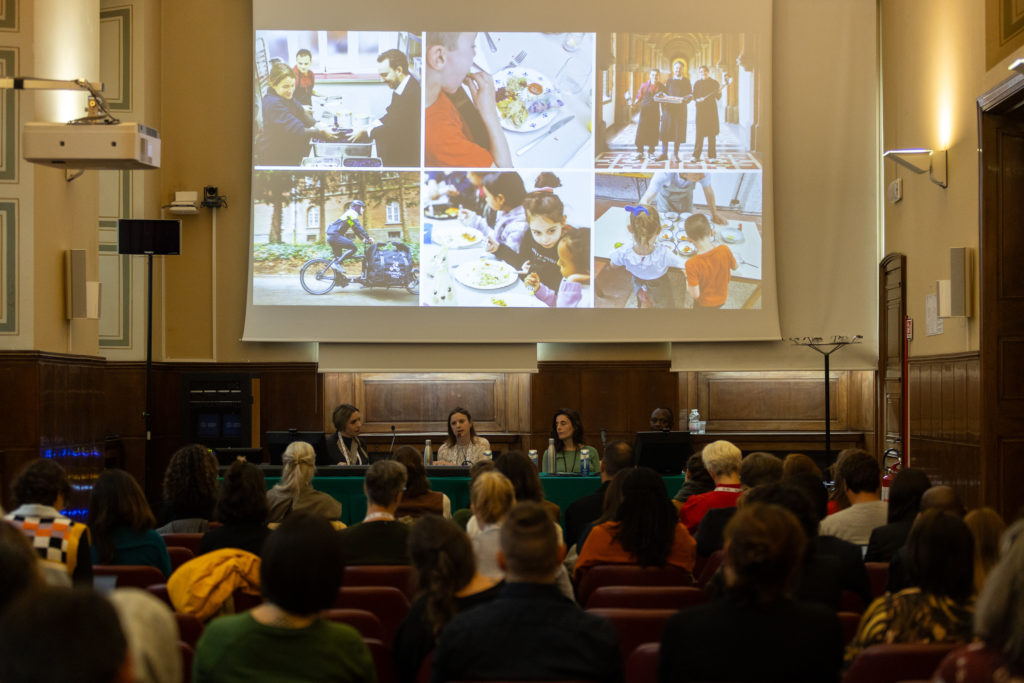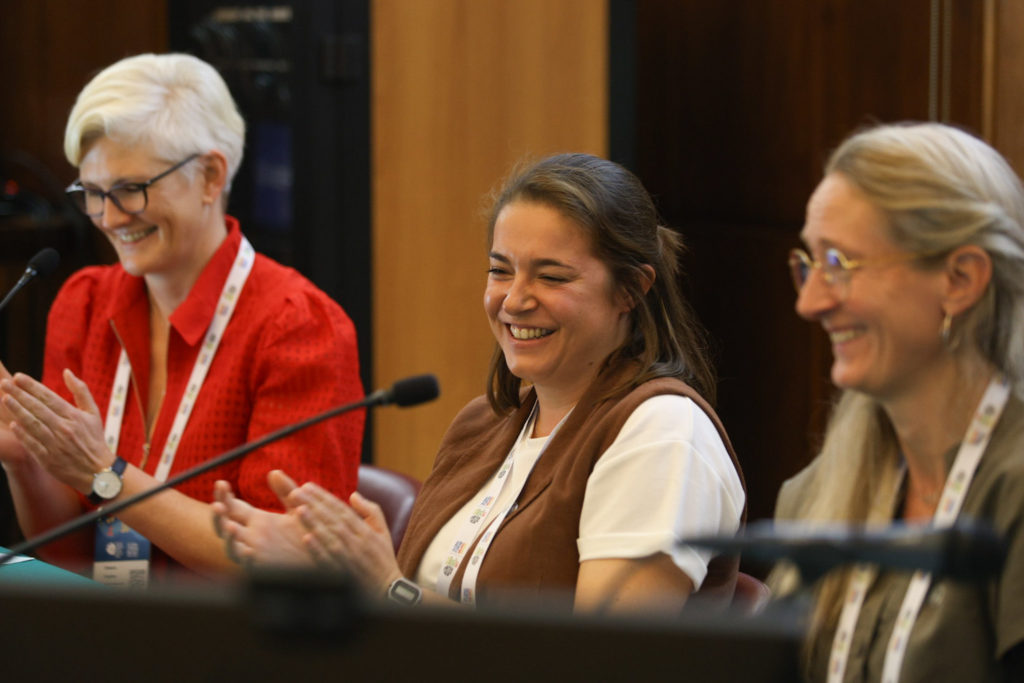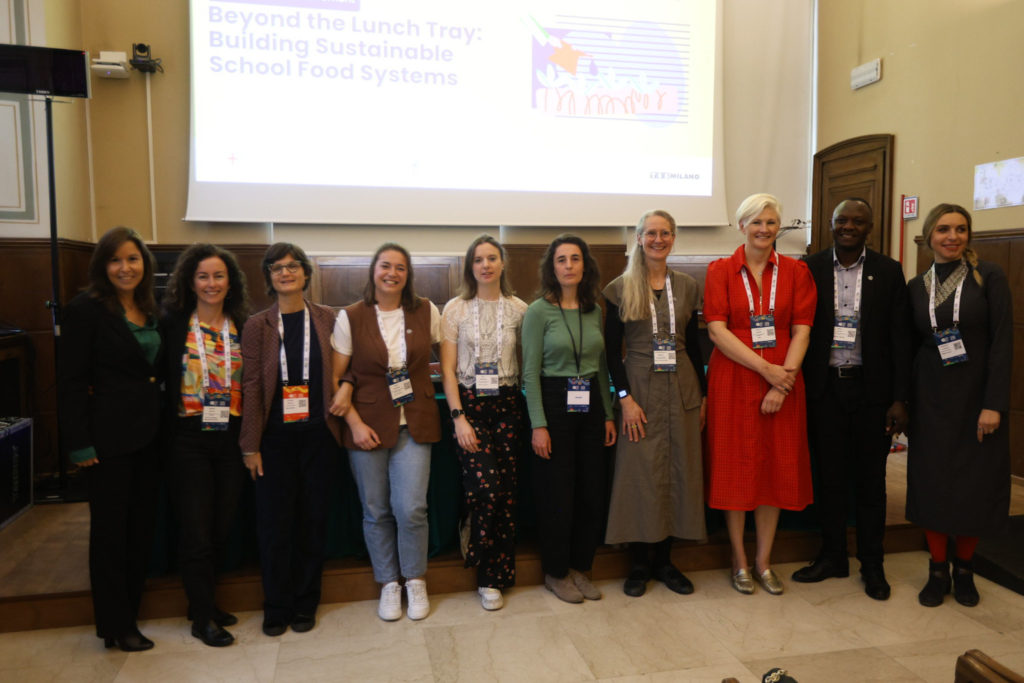In a world grappling with climate disruption, food insecurity, and rising inequality, the Milan Urban Food Policy Pact (MUFPP) Global Forum 2025 offered a rare dose of optimism – and a blueprint for action.
Since its inception at Expo 2015, the MUFPP has grown into the world’s largest city-led food policy network. Held in Milan from October 13–17, the Forum marked the 10th anniversary of the MUFPP, a pact now signed by over 330 cities representing more than 520 million people. The message from the Italian host city was clear: cities are no longer waiting for national governments to act – they are leading the charge for sustainable, inclusive, and resilient food systems. The SC4C project taps into the strength of cities as engines of change, shifting the focus from national policy debates to hands-on, local action.
This year’s Forum brought together more than 500 delegates from 130 cities for five days of dialogue, field visits, and celebration.
The Forum concluded with the adoption of an updated MUFPP Framework for Action, integrating climate mitigation and adaptation more deeply into urban food policies. The final declaration called for the next decade to be one of “implementation, integration, and inclusion” concluded in five commitments. One of the five commitments is “Recognize school meals as a key instrument of social protection, ensuring that every child has access to a nutritious and equitable meal every day. Cities commit to strengthening and expanding school meal programmes as an effective pathway to advance food security, social inclusion and child well-being.”
As Carlo Petrini, founder of Slow Food, reminded delegates in his closing keynote: “The future of food is not in the hands of corporations or governments alone. It is in the hands of communities, of cities, of people who care.”
Beyond the Lunch Tray: Cities Lead the Change for Sustainable School Food
In Milan, a full university conference room became the stage for an open conversation about the future of school meals. Representatives from six cities around the world gathered for the session titled “Beyond the Lunch Tray: Building Sustainable School Food Systems”, co-hosted by SchoolFood4Change (SF4C), WWF Sweden, ICLEI Europe, and the World Resources Institute.
The message was clear: school meals are more than just food on a plate. They are a lever for climate action, social equity, and public health – and cities are stepping up to the challenge.

“Acting locally has a global impact,” said Amalia Ochoa of ICLEI Europe. SF4C’s triple approach – combining sustainable procurement, food education, and the Whole School Food Approach – has already reached over 636,000 children across 400 schools in 36 municipalities. Canteen staff in 500 schools have been trained to prepare nutritious, culturally appropriate meals while reducing food waste.
In Belgium, where warm school lunches are not the norm, the city of Leuven took action. “After COVID, many children were coming to school with chips and old fries,” said Ellen Vantomme, project coordinator for SF4C in Leuven. “We knew we had to act.”
The city launched a pilot offering free breakfasts and healthier lunch options. Some schools went vegetarian, supported by subsidies, to ensure no child went hungry. “The SF4C experience made us ready to scale up,” Vantomme added.
In Uganda’s young city of Mbale, where only 17% of pupils receive school meals, Wilber Kakaire told about the transition from parent to government led food education programme. “We started with 10 schools, mobilising parents and teachers,” he explained. “If the Government adopts a national feeding programme, Cities like Mbale could feed 80% of their students.” That’s why the city is now pushing for a national model to institutionalise school meal programmes.
In France, Lyon has transformed lunch into a moment of learning and connection. Since 2022, the city has introduced more local and organic ingredients, with two vegetarian meals per week.
“We trained staff to engage with children during meals,” said Estelle Jacq from the City of Lyon. “They talk about food, offer small portions to taste, and create a friendly atmosphere.” A new handbook celebrates the central role of kitchen staff in shaping children’s food experiences.
The second panel, led by WRI, explored how cities are measuring progress. In Ghent, Belgium, Sarah Bruinaars shared how the city cut food-related emissions by 38% by shifting to “half-half” meals – 50% plant-based, 50% animal protein. “But meals must be delicious,” she stressed. “We eat with the kids, we ask them what they like, and we adapt.”
In Matosinhos, Portugal, Joana Aguiar described a rigorous monitoring system where nutritionists inspect meals daily. “We engage the whole school community,” she said. “In 2023, 91% of parents gave positive feedback.”
And in Copenhagen, procurement is a tool for transformation. “We’ve reached 88% organic food within budget,” said Betina Bergmann Madsen. “You can use procurement to teach children where food comes from,” said Betina Bergmann Madsen of Copenhagen. “We created a potato-growing kit with videos from farmers. When the kids met the farmer, he was a movie star to them.”
As the session closed, the message was unmistakable: cities are not waiting for permission – they are leading. From policy shifts to school gardens, from procurement reform to joyful mealtimes, the SF4C network is proving that sustainable school food is not a dream – it’s already happening.
And as Bettina put it, “Free school meals are the untapped power of cities. Let’s make them the norm.”

Cities Feeding the Future and a Global Database on School Meals
At the heart of the Forum was the Cities Feeding the Future Initiative, a joint effort between MUFPP and the School Meals Coalition. Launched in 2023, the initiative now includes Champion Mayors from cities like Seoul, Nairobi, Montpellier, and São Paulo, all committed to scaling up sustainable school meal programmes.
The School Meals Coalition, now backed by 111 governments and 150 partners, has reported positive changes since 2020:
- 466 million children are now reached by school meal programmes worldwide – an increase of 80 million since 2020.
- 99% of funding comes from domestic budgets, making school meals the largest public food system on the planet.
- Over 40 countries have submitted national commitments, detailing 464 actions across policy, financing, programme design, and more
The Global Database on School Meals was presented at the Forum – the world’s most comprehensive repository of data on school meal programmes. It aims to fill a critical gap: the lack of harmonized, reliable data on school meals and was developed under the Data and Monitoring Initiative (DMI) of the School Meals Coalition, hosted by the World Food Programme (WFP). The database consolidates information from national governments, global surveys, and partners. It defines core indicators across sectors – education, nutrition, health, WASH, and food systems – offering a multidimensional view of impact. It even introduces a new SDG4 indicator to track school meal coverage under the UN’s Sustainable Development Goal for Quality Education.
As the Forum closed, Anna Scavuzzo, Milan’s Deputy Mayor for Food Policy, summed it up: “Cities are not just implementing food policies – they are designing them. And school meals are where it all begins.”
